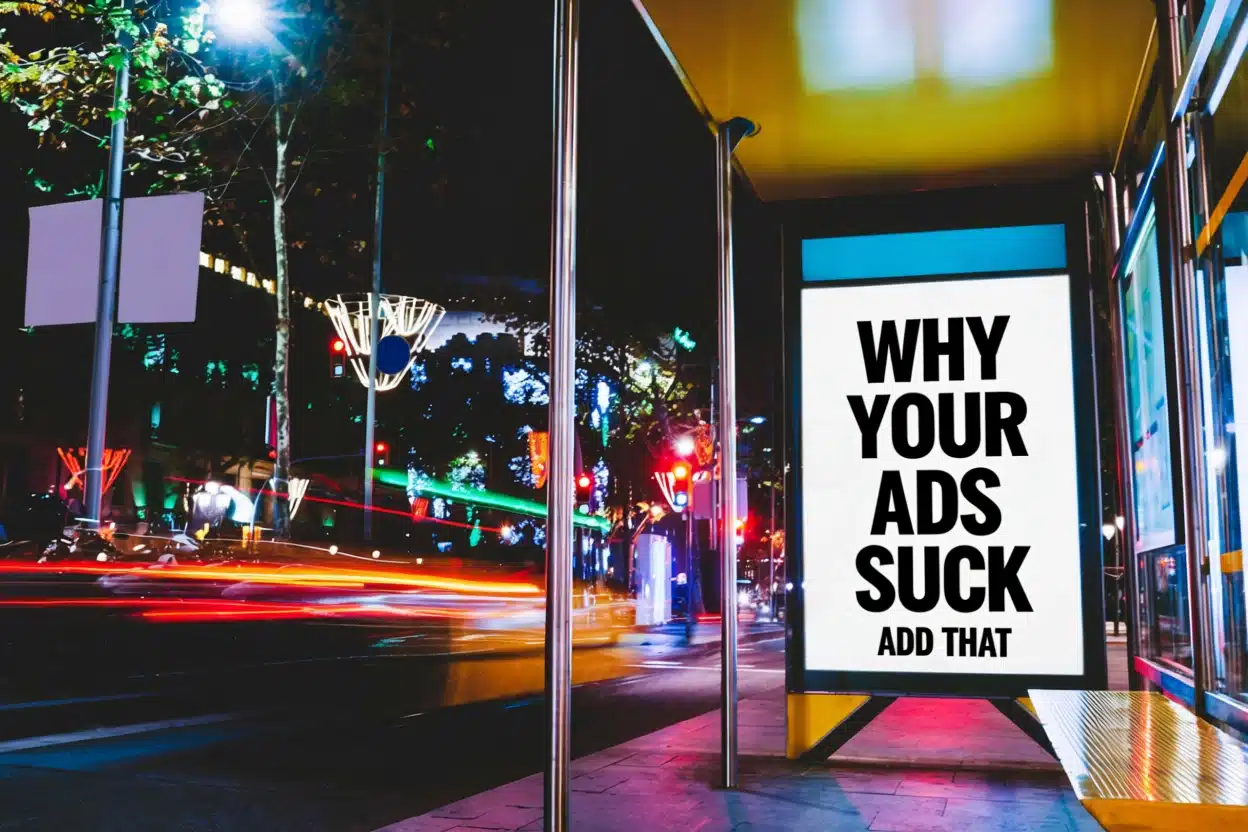The landscape of digital marketing is evolving rapidly, driven by advancements in artificial intelligence (AI) and automation. These technologies are reshaping how businesses interact with customers, streamline processes, and create content. As we look ahead, understanding the trends in AI and automation will be crucial for marketers aiming to stay competitive. This article explores the future of digital marketing, highlighting key areas where AI and automation are making a significant impact.
Key Takeaways
- AI is enhancing customer experiences by providing personalised content and recommendations.
- Automation tools are improving marketing efficiency and reducing costs for businesses.
- AI plays a vital role in content creation, helping marketers generate engaging material quickly.
- Emerging trends like voice search and advanced chatbots are set to transform how businesses engage with customers.
- Ethical considerations, including data privacy, are essential as AI becomes more integrated into marketing strategies.
AI-Driven Personalisation in Digital Marketing
Enhancing Customer Experience
AI-driven personalisation is transforming how businesses interact with their customers. By using data analysis, companies can create a more engaging experience tailored to individual preferences. This leads to:
- Increased customer satisfaction
- Higher retention rates
- Improved brand loyalty
Tailored Content and Recommendations
With AI, businesses can provide customised content and recommendations that resonate with their audience. This includes:
- Personalised email campaigns
- Targeted advertisements based on user behaviour
- Dynamic website content that adapts to user preferences
Predictive Analytics for Better Engagement
Predictive analytics powered by AI helps marketers understand future customer behaviours. This allows for:
- Anticipating customer needs
- Crafting timely marketing messages
- Enhancing overall engagement strategies
AI-driven personalisation is not just a trend; it is a necessity for businesses aiming to stay competitive in the digital landscape. By leveraging AI, companies can significantly enhance customer engagement, increase conversion rates, and improve overall satisfaction.
| Metric | Impact |
|---|---|
| Customer Satisfaction | Increased by 20% |
| Conversion Rates | Improved by 30% |
| Return on Ad Spend | Enhanced by 25% |
Automation Tools Revolutionising Marketing Strategies
In today’s fast-paced digital world, automation tools are transforming marketing strategies. These tools help marketers save time and focus on more strategic tasks. By simplifying workflows, they allow for more efficient marketing processes.
Streamlining Marketing Processes
Automation tools are designed to make marketing easier and more effective. Here are some key benefits:
- Time-saving: Automating repetitive tasks like email campaigns and social media posts frees up time for creative work.
- Consistency: Automated tools ensure that messages are sent out at the right time, maintaining a steady flow of communication.
- Data Management: These tools help in managing customer data efficiently, allowing for better targeting and segmentation.
Cost-Effectiveness and Efficiency
Using automation tools can lead to significant cost savings. Here’s how:
- Reduced Labour Costs: Fewer staff are needed for manual tasks, which lowers overall expenses.
- Higher ROI: Automated campaigns often yield better results, leading to increased revenue.
- Scalability: As businesses grow, automation allows for easy scaling of marketing efforts without a proportional increase in costs.
Popular Automation Tools in 2024
As we look ahead, several automation tools are gaining popularity:
| Tool Name | Purpose | Key Feature |
|---|---|---|
| HubSpot | Inbound marketing and CRM | Comprehensive marketing platform |
| Mailchimp | Email marketing | User-friendly email builder |
| Hootsuite | Social media management | Scheduling across multiple platforms |
| Zapier | Workflow automation | Connects different apps easily |
| ActiveCampaign | Email marketing and automation | Advanced segmentation options |
Automation tools are essential for modern marketing strategies, enabling businesses to adapt quickly and efficiently to changing market demands.
By embracing these tools, marketers can enhance their strategies and focus on what truly matters: connecting with their audience effectively.
The Role of AI in Content Creation and Curation
Natural Language Processing in Content Generation
AI is changing how we create content. With natural language processing (NLP), machines can now write articles, social media posts, and even product descriptions. This technology helps marketers save time and produce high-quality content quickly. Here are some benefits of using AI in content generation:
- Speed: AI can generate content in a fraction of the time it would take a human.
- Consistency: AI ensures that the tone and style remain uniform across all content.
- Scalability: Marketers can produce more content without needing to hire additional staff.
AI-Powered Content Curation
AI is also excellent at curating content. It can analyse vast amounts of data to find relevant articles, videos, and images that match a specific theme or topic. This means marketers can provide their audience with valuable information without spending hours searching for it. Some key points about AI in content curation include:
- Relevance: AI can philtre content to ensure it aligns with audience interests.
- Timeliness: AI can quickly identify trending topics, allowing marketers to stay current.
- Personalisation: AI can tailor content suggestions based on user behaviour and preferences.
Balancing Automation with Human Creativity
While AI is powerful, it’s essential to remember that human creativity still plays a vital role in content creation. AI can assist in generating ideas and drafting content, but the final touch often requires a human touch. Here are some ways to balance AI and human input:
- Use AI for initial drafts and brainstorming.
- Have humans refine and edit the content for quality.
- Encourage collaboration between AI tools and creative teams.
In the future, the combination of AI and human creativity will lead to even more engaging and effective content strategies. Marketers must embrace this partnership to thrive in the digital landscape.
Overall, AI is transforming content creation and curation, making it easier for marketers to engage their audiences effectively. As we look ahead, the integration of AI will continue to shape how we approach content in the digital marketing world.
Emerging Trends in AI and Automation for 2025
Voice Search Optimisation
Voice search is set to become a major player in digital marketing by 2025. With the rise of smart speakers and voice assistants, businesses will need to adapt their SEO strategies. Optimising for voice search means creating content that sounds natural and conversational. Here are some key points to consider:
- Focus on long-tail keywords that reflect how people speak.
- Use question-based content to match common voice queries.
- Ensure your website is mobile-friendly, as many voice searches are done on mobile devices.
Advanced Chatbots and Virtual Assistants
By 2025, chatbots will feel much more human-like. They will be able to handle complex conversations and provide tailored responses. This will lead to:
- Improved customer satisfaction as chatbots understand nuances in conversations.
- Reduced operational costs for businesses by automating customer service.
- Enhanced engagement through personalised interactions.
AI in Programmatic Advertising
AI will revolutionise programmatic advertising, making it more efficient and effective. Here’s what to expect:
- Real-time bidding will become smarter, allowing for better ad placements.
- AI will analyse user behaviour to create highly targeted ads.
- Businesses will see improved ROI as AI optimises ad spend.
As we move towards 2025, the integration of AI in marketing will not only enhance efficiency but also create more meaningful connections with customers. Embracing these trends will be crucial for staying competitive in the digital landscape.
In summary, the future of digital marketing will be shaped by voice search optimisation, advanced chatbots, and smarter programmatic advertising. Businesses that adapt to these changes will thrive in the evolving market.
Challenges and Ethical Considerations in AI Marketing
As AI continues to shape the marketing landscape, it brings with it a range of challenges and ethical concerns that businesses must navigate. Understanding these issues is crucial for maintaining trust and integrity in marketing practises.
Data Privacy Concerns
One of the most pressing issues is data privacy. Customers are increasingly aware of how their information is used, leading to demands for greater control over their data. Marketers must ensure that they:
- Obtain explicit consent from users before collecting data.
- Be transparent about how data is used and stored.
- Implement robust security measures to protect customer information.
Maintaining the Human Touch
While AI can automate many processes, it is essential to maintain a human touch in marketing. Over-reliance on automation can lead to:
- A lack of personal connection with customers.
- Missed opportunities for genuine engagement.
- Potential alienation of customers who prefer human interaction.
Ethical Use of AI in Marketing
The ethical use of AI is a significant concern. Marketers must avoid practises that could be seen as manipulative or deceptive. This includes:
- Ensuring that AI-driven content does not mislead consumers.
- Avoiding the use of AI to exploit vulnerable populations.
- Being mindful of the ethical dilemma of AI in marketing: a slippery slope that could lead to consumer manipulation.
In the rapidly evolving world of AI marketing, businesses must balance innovation with ethical responsibility to build lasting customer relationships.
By addressing these challenges, marketers can harness the power of AI while fostering trust and loyalty among their customers.
Future Outlook: Integrating AI with Human Insight
Collaborative AI and Human Strategies
In the evolving landscape of digital marketing, the integration of AI and human insight is becoming crucial. Businesses are realising that while AI can handle data and automate tasks, the human touch is essential for creativity and emotional connection. Here are some key strategies for collaboration:
- Utilise AI for data analysis to identify trends and insights.
- Incorporate human creativity to craft compelling narratives and campaigns.
- Foster teamwork between AI tools and marketing teams to enhance overall effectiveness.
Leveraging AI for Strategic Decision Making
AI is not just a tool; it’s a partner in decision-making. By 2025, we can expect AI to play a significant role in shaping marketing strategies. Here’s how:
- Real-time data processing will allow marketers to make quicker decisions.
- Predictive analytics will help forecast customer behaviour and market trends.
- Automated reporting will free up time for marketers to focus on strategy rather than data crunching.
The Importance of Continuous Learning
As technology advances, so must our skills. Continuous learning will be vital for marketers to stay relevant. Consider these points:
- Stay updated with the latest AI tools and trends.
- Participate in training and workshops to enhance skills.
- Encourage a culture of learning within marketing teams to adapt to changes.
The future of digital marketing lies in the balance between AI-driven efficiency and the irreplaceable value of human insight. Embracing this balance will lead to more effective and engaging marketing strategies.
In conclusion, the future of digital marketing will be defined by how well businesses can integrate AI with human creativity and insight. This partnership will not only enhance customer experiences but also drive better results in an increasingly competitive landscape.
As we look ahead, the fusion of artificial intelligence with human insight promises to reshape our world. This collaboration can lead to smarter decisions and innovative solutions. Don’t miss out on the future of marketing—visit our website to discover how we can help you thrive in this new landscape!
Conclusion
In summary, the future of digital marketing is closely linked with the rise of AI and automation. As technology progresses, businesses need to adapt and take advantage of these new trends. By using automation, marketers can make their work easier, save time, and offer more personalised experiences to customers. However, it is important to remember that a human touch is still vital in marketing strategies. Keeping up with new trends and choosing the right automation tools will be key for businesses to remain competitive. By combining the efficiency of automation with the creativity and judgement of human marketers, we can fully realise the potential of digital marketing in the years ahead.
Frequently Asked Questions
What is the effect of AI on digital marketing?
AI, or Artificial Intelligence, greatly influences digital marketing in several ways. It helps create personalised content, enhances customer experiences, and allows for better predictions about customer behaviour. AI also automates repetitive tasks, making marketing processes more efficient.
How does AI improve customer interaction?
AI improves customer interaction by using chatbots and virtual assistants that can provide instant responses and personalised recommendations. This makes it easier for customers to get help and improves their overall experience.
Is marketing automation becoming more popular?
Yes, marketing automation is increasingly popular as it helps businesses save time and resources by automating tasks like email marketing and social media posts. This leads to better engagement and higher conversion rates.
What are some examples of AI tools used in marketing?
Some popular AI tools in marketing include chatbots for customer service, content creation tools like OpenAI, and analytics software that helps businesses understand customer behaviour.
What challenges does AI present in marketing?
AI poses challenges such as data privacy concerns and the need to maintain a human touch in marketing. Businesses must ensure they use customer data responsibly and ethically.
How can businesses prepare for the future of AI in marketing?
To prepare for the future, businesses should start experimenting with AI tools now, stay informed about emerging trends, and find ways to integrate AI with human creativity in their marketing strategies.

















